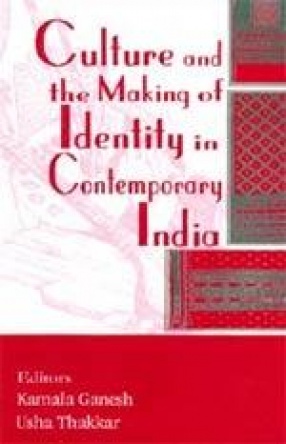Negotiation and Social Space: A Gendered Analysis of Changing Kin and Security Networks in South Asia and Sub-Saharan Africa
Synopsis
"The recent literature on family and kinship has exhibited a divergence in approaches. On the one hand, the discourse on human rights and gender depicts women as being trapped within oppressive systems. On the other, the traditional academic and policy approaches tend to treat the family as being beyond change and as an institution which enshrines principles of consensus and support. Deviating significantly from both these approaches to family and kinship, this volume of original essays (a companion to Shifting Circles of Support, Sage 1996) offers a fresh conceptualisation which views individuals and, then, relationships as crucial elements. Through a combination of macro and micro perspectives, it provides a comparative and gendered analysis of shifts within marriage, family, kin and social networks in societies undergoing substantial change in Sub-Saharan Africa and South Asia. The contributors argue that the process of global restructuring has opened up both economic opportunities and social spaces. This has, in turn, resulted not only in changing the meaning and content of relationships, for instance, between parents, children and siblings, but also wider kin networking. It has brought about changes in the nature of such life phases as puberty, (unmarried) adulthood and old age, and has seen the emergence of new social categories--such as economically independent single women/mothers, and neglected children and elders. Going further, the analysis develops a critique of hegemonic qualities of the concept 'family', its supposedly unchanging character, as well as its assumed harmonious nature. It views the family as a primary social arena where relationships are constantly (re)negotiated and which, while providing valuable security and support, also contains exploitation and violence. Overall, the volume articulates an understanding of changing kin relations as related to changing degrees of social (in) security and social exclusion by analysing both the subtle erosion as well as strengthening of people's positions within the kin and family networks. It highlights the importance of the comparative perspective and the urgency of adopting such an approach for policy initiatives. It will be of considerable interest to those in the fields of social anthropology, gender studies, sociology, development studies, and kinship and family studies."
Read more
28.50
25.65
$
30.00 $
Free delivery Wolrdwidе in 10-18 days
Ships in 2-4 days from New Delhi
Membership for 1 Year $35.00
Get it now and save 10%
Get it now and save 10%
BECOME A MEMBER
Books by the same authors
-

Culture and the Making of Identity in Contemporary India
-

Labour Movement in India 1937-1939 Documents (Volume 17-18)
-

Labour Movement in India 1937-1939 Documents (Volume 19-20)
-

Labour Movement in India 1937-1939 Documents (Volume 21-22)
-

Gender Transformation, Power and Resistance Among Women in Sri Lanka: The Fish Don't Talk about the







Bibliographic information
Carla Risseeuw